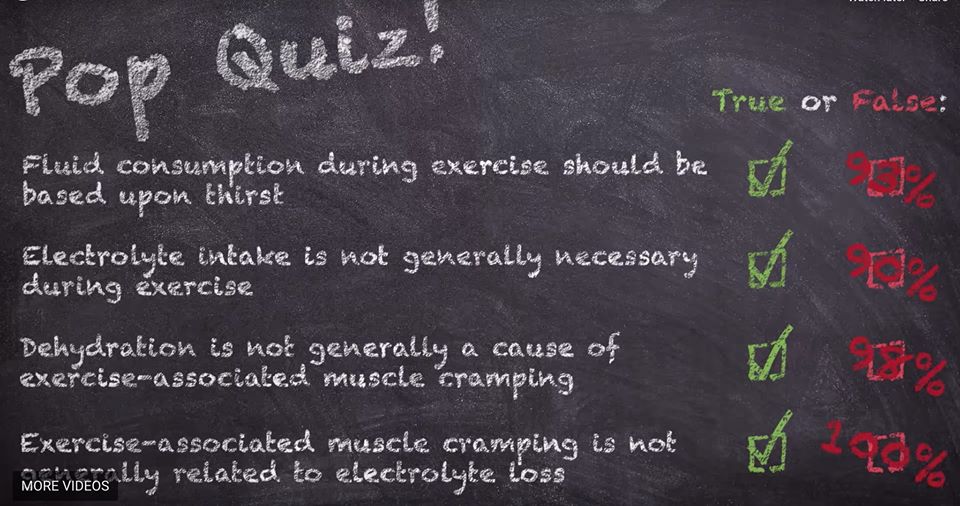A video by Dr Greger — Are Sports Drinks Safe & Effective? (6 mins, 2018) — caught me by surprise. Early in the video, Dr Greger explains that discovery of salt-sugar solution for oral rehydration is nothing short of a miracle for treating severe diarrhoea — it continues to save millions of lives even today! But should we use a similar solution after exercise as well? Key insights shared in the video:
- Fluid consumption during exercise should be based upon thirst
- Electrolyte intake is generally not necessary during exercise
- Dehydration is not generally a cause of exercise-associated muscle cramping
- Exercise-related muscle cramping is not generally related to electrolyte loss
How many popular fitness websites agree with the four points above? Very few!

In the past, during long hikes and backpacking trips, I used to carry some elecrolytes and some coconut water, and I would drink water with electrolytes, or coconut water preemptively (when I wasn't thirsty) with the goal of avoiding dehydration and muscle cramps.
… but to my surprise, Dr Greger says that "dehydration is generally not a cause of exercise-associated muscle cramping", and that "exercise related muscle cramping is generally not related to electrolyte loss", and that "electrolyte intake is generally not necessary during exercise", and that "our fluid consumption during exercise should be based on thirst"! Whoa! This approach is so different from what I used to do!
In the articles and videos below, Dr Greger outlines studies in which the impact of water, sports drinks and coconut water were compared for athletic performance and rehydration. No significant differences were found among the three drinks. This has motivated me to prefer plain water for rehydration after exercise.
Articles by Dr Greger:
- (2022) Water vs. Coconut Water vs Sports Drinks for Athletes
- (2022) Sports Drinks Are Neither Safe Nor Effective
Videos by Dr Greger:
(6 mins) Transcript.
At the beginning of the video, Dr Greger explains that discovery of salt-sugar solution for oral rehydration is nothing short of a miracle for treating severe diarrhoea — it continues to save millions of lives even today! But should we use a similar solution after exercise as well?
(6 mins) Transcript. Dr Greger explains that it doesn't matter if we drink water or coconut water or sports drinks — all are equally effective! In other words, neither coconut water nor sports drinks were found to be more effective than plain water.
The first few minutes are about Reverse Osmosis, filtration, TDS and mineral losses. At offset 3:43, Dr Peter Rogers talks about exercise-related rehydration.

 Instagram
Instagram YouTube
YouTube